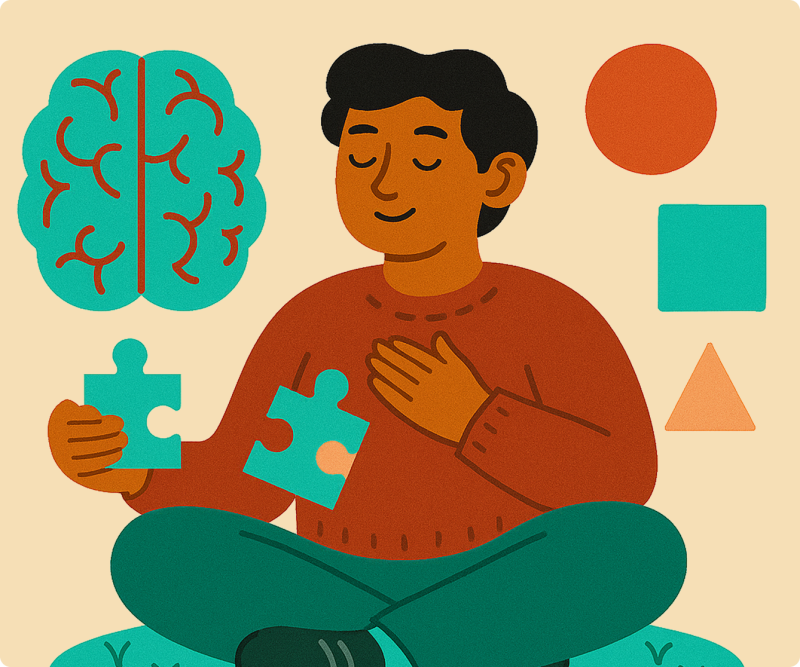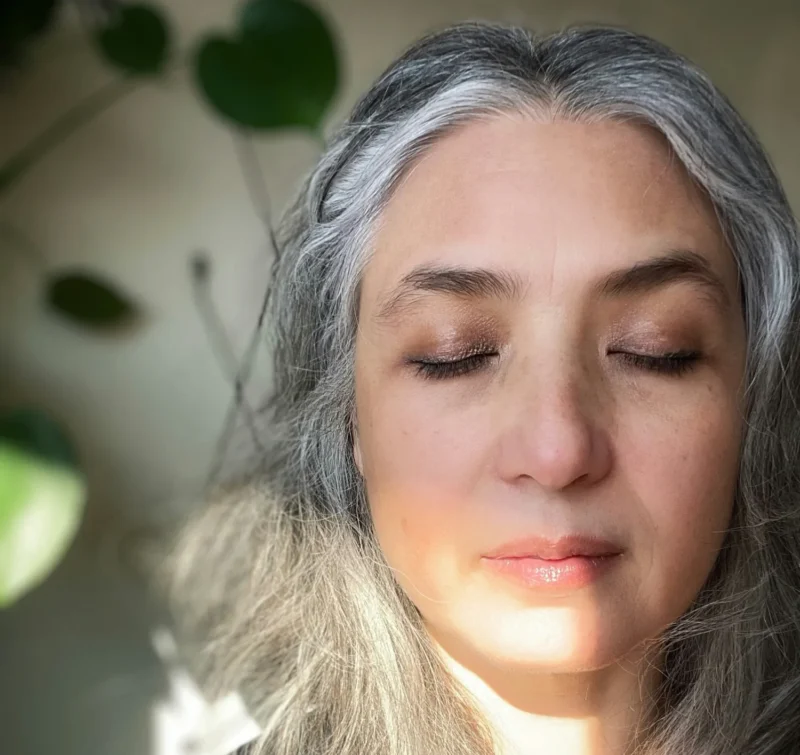
Autism Spectrum Disorder (ASD)
Autism Spectrum Disorder (ASD) is a neurodevelopmental difference that affects how a person experiences and engages with the world. Autism influences communication, sensory processing, social interaction, and patterns of thinking and behaviour — but it does not mean something is wrong or broken. Autistic individuals may experience the world more intensely or uniquely, often noticing details others miss, thinking in creative or systematic ways, and bringing deep focus to areas of interest.
Common signs & symptoms
Autism presents differently from person to person. Some common characteristics include:
- Differences in social communication (e.g., difficulty reading non-verbal cues, preferring direct communication)
- Sensory sensitivities or strong preferences (e.g., noise, lights, clothing textures)
- Deep, focused interests or passions
- A need for routine, structure, or predictability
- Differences in play, movement, or interaction styles
- Challenges with executive functioning (e.g., planning, transitions, emotional regulation)
- “Masking” or camouflaging traits to fit in socially, which can lead to exhaustion
These traits may be present from early childhood or may become clearer later in life — particularly for women, nonbinary people, or those whose differences were misunderstood or overlooked.
Causes or contributing factors
ASD is a naturally occurring neurodevelopmental variation that begins early in brain development. While the exact cause is not fully understood, research suggests that a combination of genetic and environmental factors contribute to autism.
Autism is not caused by parenting, trauma, or vaccines — and it is not something that needs to be “cured.” Rather, autistic individuals thrive in environments that are supportive, structured, and responsive to their unique needs.
Types or subcategories
- While autism is referred to as a “spectrum,” this doesn’t mean there is a linear scale from “more” to “less” autistic. Instead, it reflects the diversity of traits across areas such as:
- Sensory processing
- Communication styles
- Social preferences
- Motor coordination
- Cognitive profiles (e.g., co-occurring ADHD or intellectual differences)
Every autistic person is different — and all ways of being are valid.
We support individuals with:
- Autism across the lifespan (children, adolescents, and adults)
- Autistic people with co-occurring ADHD, anxiety, or other diagnoses
- Late-identified or self-identifying autistic adults
- Autistic women, nonbinary, and gender-diverse people, who may present differently
Autistic individuals navigating school, work, parenting, or relationships
- Sensory processing
What you can do
Living as an autistic person in a neurotypical world can present challenges — but also meaningful opportunities for growth, clarity, and connection. Strategies that may help include:
- Exploring identity: Learning more about autism can foster self-understanding and pride
- Creating sensory-friendly environments
- Using visual supports, planners, or routines for structure
- Advocating for accommodations at school or work
- Unmasking and reducing burnout by honouring your needs
- Connecting with autistic community for validation and belonging
Practising self-compassion in the face of misunderstanding or stigma
How we can help
At Seed Psychology, we provide compassionate, neuroaffirming therapy and assessments for people on the autism spectrum. Our Psychologists take the time to understand your story, support your wellbeing, and build personalised strategies that work for you.
Therapy may include support with:
- Managing sensory or emotional overwhelm
- Navigating identity, self-esteem, or late diagnosis
- Social communication and connection
- Executive functioning and daily living
- Advocacy in education, healthcare, or workplace settings
- Building confidence in transitions, relationships, and self-care
We also offer neurodevelopmental assessments for children, teens, and adults seeking greater clarity about ASD.
Whether you’re exploring a diagnosis or seeking support for life as an autistic person, you are welcome here.
Our client care team can connect you with a Psychologist who understands and affirms neurodivergent experiences. We offer in-person sessions in Brunswick and online therapy across Australia.
Through connection,
change is possible
Our compassionate team at Seed Psychology is here to help you regain your wellbeing and navigate life’s challenges with greater confidence and clarity. Connect with us to book an appointment with a psychologist in our Brunswick clinic or via telehealth Australia-wide.
Available resources
Meet our amazing team of therapists
Our diverse team of psychologists offer individual, couples, and online therapy, as well as assessments. Beyond their expertise, they bring humanity and care, providing respectful, affirming support tailored to each person’s unique experience.
Freqeuently asked questions
-
You do not need a referral to see a Psychologist at Seed Psychology. However, if you’d like to claim a Medicare rebate, you will need a Mental Health Care Plan (MHCP) from your GP. With a MHCP, you may be eligible for rebates on up to 10 sessions per calendar year. These sessions can be used at any psychology clinic of your choice. To access Medicare psychology rebates, book an appointment with your GP and ask for a Mental Health Care Plan. Most referrals begin with 6 sessions, with the option to access 4 more after a review. Referrals can also be provided by a psychiatrist or paediatrician.
-
Yes, we offer in person sessions at our Brunswick East practice and secure online appointments. Our online services make it easy to connect with your Psychologist from anywhere, offering flexibility without compromising on care. Whether you attend in person or online, you’ll receive consistent, high-quality support.
-
To book an appointment, simply use our booking form, or call our client care team on 9388 8113.
-
Our goal is to make mental health care approachable, inclusive, and clear—so you always know what to expect.
Individual Therapy Sessions
- Private clients (no referral): $255 – $285
- Clients with a MHCP: $230 – $285
- Medicare rebates: $96.65 – $141.85 per session (depending on the clinician)
- Private clients (no referral): $255 – $285
-
At Seed Psychology, your safety and wellbeing are our highest priorities. While we are here to support you through regular therapy sessions, we are not a crisis service and may not be available outside of scheduled appointments. If you or someone you care about is in immediate danger, experiencing a mental health crisis, or needs urgent support, it’s important to seek help straight away through the appropriate emergency or crisis services. You can find a list of trusted organisations and services here that can provide immediate support when you need it most.











